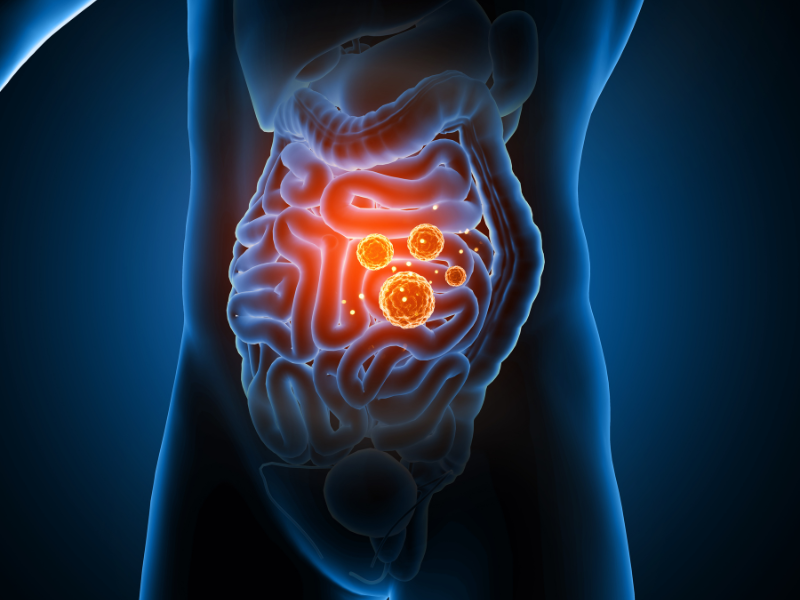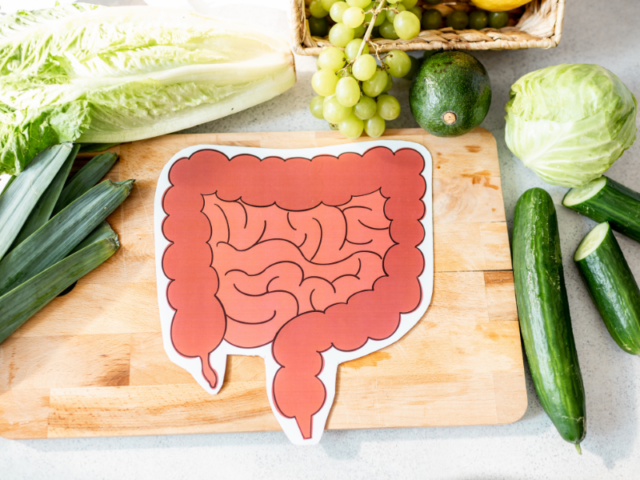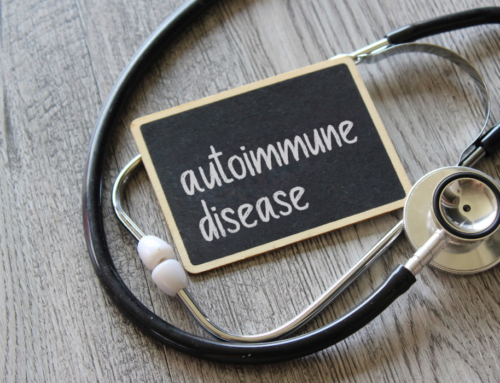
Charlotte Treatment for Leaky Gut – How to Heal Leaky Gut
Our digestive system has a vast lining in our stomach. When the digestive system is healthy, it forms a protective barrier that only keeps the bad stuff out of our bloodstream and only allows the good stuff (like nutrients) in.
However, in an unhealthy digestive system, openings may appear in this barrier that allow things like partially digested food, toxins, and even germs to get through and cause trouble. This can cause inflammation and mupset the balance of intestinal bacteria, a condition known as leaky gut, and sometimes termed intestinal permeability. Unfortunately, this condition can cascade into many other health problems as well. Scientists are finding more and more that changes in our gut bacteria and inflammation could be part of the root cause of many chronic diseases.
At Companion Health, we understand the importance of gut health and we’re here to help you on your journey to healing. This article explores the causes of leaky gut and the various treatment options available, including conventional and alternative approaches.
Let’s get started!
What Are the Signs of a Leaky Gut
There isn’t one specific symptom of a leaky gut. Rather, if your gut lining gets damaged, you might experience one or more of the following:
- Painful digestion or irritation in your digestive system, which might present as abdominal pain soreness in your gut
- Diarrhea
- Constipation
- Bloating and gas
- Fatigue or feeling tired
- Headaches
- Brain fog, confusion or difficulty concentrating
- Joint pain
- Skin problems

Click here to Pin this article on Pinterest!
Causes of Leaky Gut
Similar to symptoms, there is not just one cause of leaky gut. Examining your lifestyle choices and medical history can reveal some potential causes, which may include the following:
Inflammation
Chronic inflammation in the gut can cause damage to the tight junctions in the gut lining, leading to a leaky gut. This ongoing inflammation, which can be a result of some of the contributing causes below, disrupts the normal functioning of the gut and can cause small openings to appear in the intestinal epithelium, allowing harmful substances to escape into the bloodstream.
Many diseases such as inflammatory bowel disease (IBD), celiac disease, Crohn’s disease, and others can trigger inflammation, but sometimes it can be attributed to lifestyle or even a combination of them. It’s important to have your doctor test appropriately to determine whether you have an autoimmune disorder, leaky gut, or both to decide on the best healing protocol.
Poor Diet
A diet high in processed foods, sugar, and artificial ingredients can contribute to inflammation and damage the gut lining. Additionally, consuming a diet high in sugar and processed foods can lead to an overgrowth of harmful bacteria in the gut. This can cause/increase inflammation and disrupt the healthy functioning of the gut lining.
Alcohol Consumption
Alcohol consumption can also cause inflammation in the gut and disrupt the gut microbiome. Alcohol is a known gut irritant and can cause damage to the gut lining, leading to an increased risk of leaky gut.
When consumed, alcohol shuts down the release of digestive enzymes, which inhibits proper nutrient absorption. And finally, because alcohol sterilizes things, it can kill the beneficial bacteria that we want to have. Our guts are not sterile. In fact, healthy guts consist of a huge variety of beneficial bacteria, which perform essential functions for us, including absorbing nutrients and digesting foods. Alcohol consumption may damage our healthy gut bacteria, and we can end up with an overgrowth of harmful bacteria, therefore increasing the risk of a leaky gut.
Antibiotic Use
The gut microbiota can be negatively impacted by antibiotics frequently used to treat bacterial infections, because antibiotics are not selective about what bacteria they kill—they go in and kill all of them.
That loss of beneficial bacteria can result in an overgrowth of harmful bacteria, which can cause inflammation and interfere with the gut lining’s normal function. In other words, antibiotics can negatively impact the diversity of healthy bacteria in the stomach, which could lead to an overgrowth of dangerous microorganisms and raise the possibility of a leaky gut.
Talk to your doctor prior to taking antibiotics to ensure that they are necessary and let them guide you to avoid overuse/unnecessary use of antibiotics.
Stress
Of note and often overlooked, chronic stress has also been linked to gut problems, including leaky gut, by disrupting the gut microbiome and increasing inflammation. Simply put, chronic stress can harm the gut by causing the release of cortisol, a stress hormone that can disrupt the gut microbiome and cause inflammation. This can lead to damage to the gut lining and, in turn, an increased risk of a leaky gut.
Infections
Certain infections, such as H. pylori or Candida overgrowth, can also contribute to developing a leaky gut. These infections can cause inflammation in the gut, damaging the tight junctions in the gut lining and increasing the risk of a leaky gut.
Non-steroidal Anti-inflammatory Drugs (NSAIDs)
In addition, regular use of NSAIDs such as ibuprofen can cause damage to the gut lining and increase the risk of a leaky gut. NSAIDs are commonly used to treat pain and inflammation, but they can also adversely affect the gut when used too frequently. Regular use of NSAIDs can cause damage to the gut lining, leading to increased intestinal permeability and the development of a leaky gut.
Food Allergies and Sensitivities
Food allergies and sensitivities are a common cause of leaky gut syndrome. When an individual consumes a food they are allergic or sensitive to, their body reacts by releasing inflammatory agents which can damage the barrier in the intestines that controls what is absorbed into the bloodstream. This leads to toxins entering the bloodstream and prompting an immune response, leading to more inflammation, and eventually, leaky gut syndrome. Understanding your food allergies and sensitivities can be key to preventing or managing leaky gut syndrome.
Related: Take Control of Your Health

How to Take Care of Your Gut for Optimal Health
The gut is an incredibly complex and vital part of the body, and taking care of it is essential for overall health and well-being. Many everyday factors, such as diet, stress, poor sleep, and lack of physical activity can wear on the gut lining and affect its integrity. However, the good news is that many therapies can help mitigate these effects and improve the overall health of your gut.
Plant-Based, Whole Foods Diet
We’ve listed a plant-based, whole food diet first, because the gut can actually be strengthened by eating a balanced diet that contains all of the required macronutrients and micronutrients (vitamins and minerals). This is especially true for organic whole foods, as pesticides and herbicides (which can often be found on conventional produce), kill microorganisms, including gut bacteria. Plus, it’s been proved that certain nutrients, such as vitamin D and the amino acid L-glutamine, can aid in healing the gut lining.
Eating a variety of organic vegetables and fruit can be helpful in taking care of your gut.
Reduce Dietary Fats, Sugars, Processed Foods and Alcohol
Unsurprisingly, dietary fats and sugars can cause a lot of unwanted effects in the body. One of those unwanted effects is damage to the protective coating on the inner walls of your intestines, allowing pathogens and toxins to enter into your bloodstream and cause inflammation throughout the body. Consume these foods in moderation, limit alcohol and replace processed foods with real, whole foods to support a healthy gut environment.
Manage Stress
Managing stress and maintaining healthy cortisol levels is another important factor in healing leaky gut syndrome. Chronic, long-term stress can compromise the barrier of the intestines, leading to an increased risk of toxins entering the bloodstream. It’s essential to lower your stress levels and practice relaxation techniques such as meditation, yoga, and deep breathing exercises to help heal a leaky gut. Mindfulness and positive thinking can also aid in reducing inflammation caused by leaky gut syndrome and help restore balance in the body.
Sleep Hygiene
Good sleep hygiene is essential to healing and preventing leaky gut syndrome. Poor quality or insufficient amounts of sleep can increase inflammation, cause negative implications to cortisol levels, weaken the intestines barrier, and slow down digestion.
We suggest aiming for 7-9 hours of undisturbed restorative sleep every night for optimal health. We also recommend creating habits with good sleep hygiene practices such as avoiding screens an hour before bed, eliminating caffeine after 12 PM, ensuring a dark and quiet bedroom environment, and trying to go to bed at close to the same time each night.
Probiotics
Probiotics, which are helpful bacteria, can help maintain the health of your gut lining by limiting the growth of the harmful bacteria in your gut, particularly in the small intestine. Specifically, incorporating probiotics into your diet fermented foods like yogurt, kimchi, sauerkraut, and miso or through supplements can promote gut health.
Prebiotics
Prebiotics feed the beneficial bacteria in your stomach, which can assist them in maintaining a healthy gut environment. Since prebiotics are frequently found in plant fibers, consuming various fruits and vegetables is vital to keeping your gut healthy.
Related: Fresh Reset: Detox that Works

Treatments for Leaky Gut
Here are some examples of treatments for leaky gut:
Medications
Anti-inflammatory drugs are commonly used to reduce inflammation in the body and they’re now being used to help heal leaky gut. One of the most commonly used anti-inflammatory drugs is corticosteroids. These drugs work by blocking the release of inflammation-causing chemicals in the body. In turn, this reduction in inflammation helps reduce the damage to the gut lining and helps heal the leaky gut.
While medications may be a first line of defense in some practices, addressing lifestyle can not only help you heal leaky gut, but may help you avoid medication.
Dietary Changes
Naturally, diet plays a crucial role in the health of the gut and can have a significant impact on leaky gut. By eliminating inflammatory foods such as processed foods, sugar, gluten, and dairy (if they are bothersome to you), the body can reduce the amount of damage to the gut lining and help heal the leaky gut.
Plus, a diet high in fiber and probiotics is essential for healing leaky gut. Fiber helps promote the growth of healthy gut bacteria, and probiotics provide the gut with beneficial bacteria to help maintain a healthy gut microbiome. By consuming a diet rich in fiber and probiotics, the body can help improve gut health and reduce the symptoms of a leaky gut.
Limiting your alcohol consumption can also be beneficial.
Supplements, IV Therapy, & Peptide Therapy
Supplements are another way to support gut health and heal leaky gut. Two popular supplements for gut health are L-glutamine and collagen. L-glutamine is an amino acid that helps support the gut lining and is used by the body to repair damaged cells. Similarly, collagen is a protein that helps keep the gut lining healthy. It can help reduce inflammation and improve overall gut health. Getting an individualized approach for supplements can help you ensure that they are tailored to what you specifically need.
On the other hand, IV hydration delivers vitamins, minerals, and other nutrients directly into the bloodstream. By bypassing the gastrointestinal system, these nutrients are absorbed much quicker and provide efficient and effective results.
Peptide therapy is another natural way to help heal leaky gut syndrome. It works by introducing short chain amino acids, known as peptides, into the body, which has been shown to strengthen the tight junctions in the intestines and reduce inflammation. Peptide therapy can also support healing of damaged tissue and balance hormones, both of which are important for restoring healthy digestion and reducing permeability of the gut wall.
Related: Mold Toxicity Testing
Companion Health: A Solution for Treating Leaky Gut in Charlotte, NC
At Companion Health, a functional medicine clinic in Charlotte, NC, we offer various services to help people heal leaky gut and improve their overall health. Our team of experts will work with you to develop a personalized treatment plan that addresses the root cause of your leaky gut and helps you achieve your health goals.
Whether you’re looking to improve gut health, reduce inflammation, or manage symptoms related to a leaky gut, Companion Health can help. Our services include gut health assessments, nutritional counseling, health coaching, and a range of treatments to help you heal your leaky gut and improve your overall health. Click here to contact us about being seen at our private concierge practice.
Conclusion
A leaky gut can significantly impact a person’s health and well-being, but there are many ways to heal it. From conventional treatments such as medications to lifestyle modifications, there are many options available to help you achieve optimal gut health.
Companion Health, located in Charlotte, NC, is dedicated to providing the best possible care for our clients, combining conventional primary care with longevity and functional medicine. We understand the importance of identifying and addressing the root cause of health issues and we offer a holistic, integrative approach to healing.
Whether it’s through concierge care, functional medicine, or primary care services, we love supporting you on your journey to optimal health. We can’t wait to work with you to help heal your leaky gut and improve your overall well-being.
If you’re looking for comprehensive and compassionate care, contact Companion Health today!
References:
Fasano, A. (2012). Leaky gut and autoimmune diseases. Clinical reviews in allergy & immunology, 42, 71-78. https://link.springer.com/article/10.1007/s12016-011-8291-x
Camilleri, M. (2019). Leaky gut: mechanisms, measurement and clinical implications in humans. Gut, 68(8), 1516-1526. https://gut.bmj.com/content/68/8/1516.abstract
Canadian Digestive Health Foundation. (n.d.). What is Leaky Gut Syndrome? Retrieved from https://cdhf.ca/en/what-is-leaky-gut-syndrome/
Mu, Q., Kirby, J., Reilly, C. M., & Luo, X. M. (2017). Leaky gut as a danger signal for autoimmune diseases. Frontiers in immunology, 598. https://www.frontiersin.org/articles/10.3389/fimmu.2017.00598/full?furriel=99b129e5a1ffa09775e93a4de7a4f2eab9269be1
Tu, P., Chi, L., Bodnar, W., Zhang, Z., Gao, B., Bian, X., Stewart, J., Fry, R., & Lu, K. (2020). Gut Microbiome Toxicity: Connecting the Environment and Gut Microbiome-Associated Diseases. Toxics, 8(1), 19. https://doi.org/10.3390/toxics8010019
Twardowska, A., Makaro, A., Binienda, A., Fichna, J., & Salaga, M. (2022). Preventing bacterial translocation in patients with leaky gut syndrome: Nutrition and pharmacological treatment options. International journal of molecular sciences, 23(6), 3204. https://www.mdpi.com/1422-0067/23/6/3204
Related:
This is for general informational purposes only and does not constitute any practice of medicine or professional health care services of any type. The use of information on this blog is at the user’s own risk. The content of this blog is not intended to be a substitute for professional medical advice, for diagnosis, or for treatment. Please seek the care of your health care professionals for any questions or concerns.








